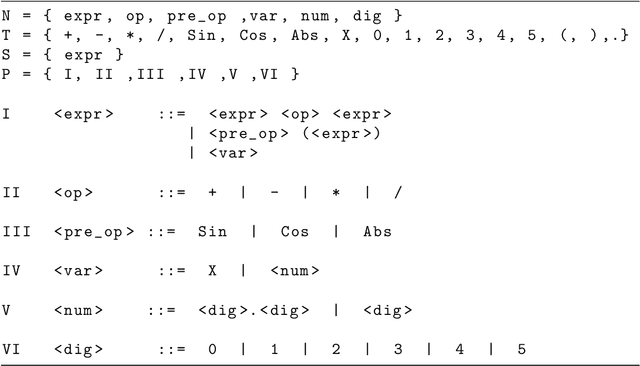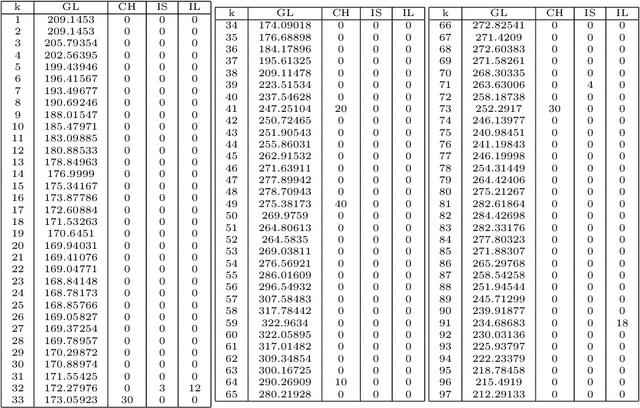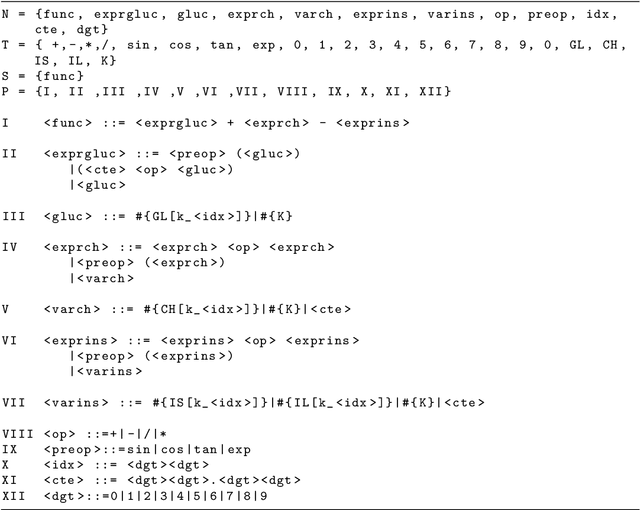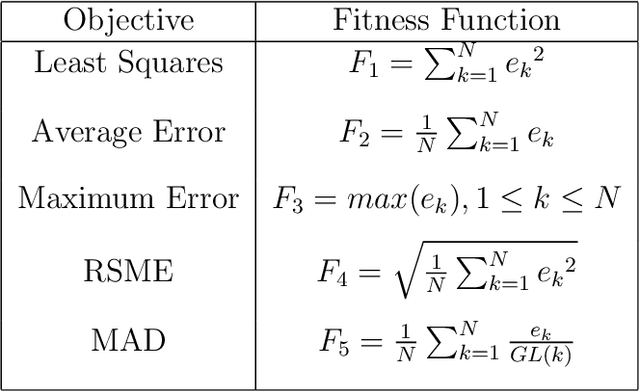J. Manuel Colmenar
Modeling glycemia in humans by means of Grammatical Evolution
Apr 27, 2023



Abstract:Diabetes mellitus is a disease that affects to hundreds of millions of people worldwide. Maintaining a good control of the disease is critical to avoid severe long-term complications. In recent years, several artificial pancreas systems have been proposed and developed, which are increasingly advanced. However there is still a lot of research to do. One of the main problems that arises in the (semi) automatic control of diabetes, is to get a model explaining how glycemia (glucose levels in blood) varies with insulin, food intakes and other factors, fitting the characteristics of each individual or patient. This paper proposes the application of evolutionary computation techniques to obtain customized models of patients, unlike most of previous approaches which obtain averaged models. The proposal is based on a kind of genetic programming based on grammars known as Grammatical Evolution (GE). The proposal has been tested with in-silico patient data and results are clearly positive. We present also a study of four different grammars and five objective functions. In the test phase the models characterized the glucose with a mean percentage average error of 13.69\%, modeling well also both hyper and hypoglycemic situations.
Optimizing L1 cache for embedded systems through grammatical evolution
Mar 06, 2023Abstract:Nowadays, embedded systems are provided with cache memories that are large enough to influence in both performance and energy consumption as never occurred before in this kind of systems. In addition, the cache memory system has been identified as a component that improves those metrics by adapting its configuration according to the memory access patterns of the applications being run. However, given that cache memories have many parameters which may be set to a high number of different values, designers face to a wide and time-consuming exploration space. In this paper we propose an optimization framework based on Grammatical Evolution (GE) which is able to efficiently find the best cache configurations for a given set of benchmark applications. This metaheuristic allows an important reduction of the optimization runtime obtaining good results in a low number of generations. Besides, this reduction is also increased due to the efficient storage of evaluated caches. Moreover, we selected GE because the plasticity of the grammar eases the creation of phenotypes that form the call to the cache simulator required for the evaluation of the different configurations. Experimental results for the Mediabench suite show that our proposal is able to find cache configurations that obtain an average improvement of $62\%$ versus a real world baseline configuration.
Multi-objective optimization of energy consumption and execution time in a single level cache memory for embedded systems
Feb 22, 2023



Abstract:Current embedded systems are specifically designed to run multimedia applications. These applications have a big impact on both performance and energy consumption. Both metrics can be optimized selecting the best cache configuration for a target set of applications. Multi-objective optimization may help to minimize both conflicting metrics in an independent manner. In this work, we propose an optimization method that based on Multi-Objective Evolutionary Algorithms, is able to find the best cache configuration for a given set of applications. To evaluate the goodness of candidate solutions, the execution of the optimization algorithm is combined with a static profiling methodology using several well-known simulation tools. Results show that our optimization framework is able to obtain an optimized cache for Mediabench applications. Compared to a baseline cache memory, our design method reaches an average improvement of 64.43\% and 91.69\% in execution time and energy consumption, respectively.
 Add to Chrome
Add to Chrome Add to Firefox
Add to Firefox Add to Edge
Add to Edge